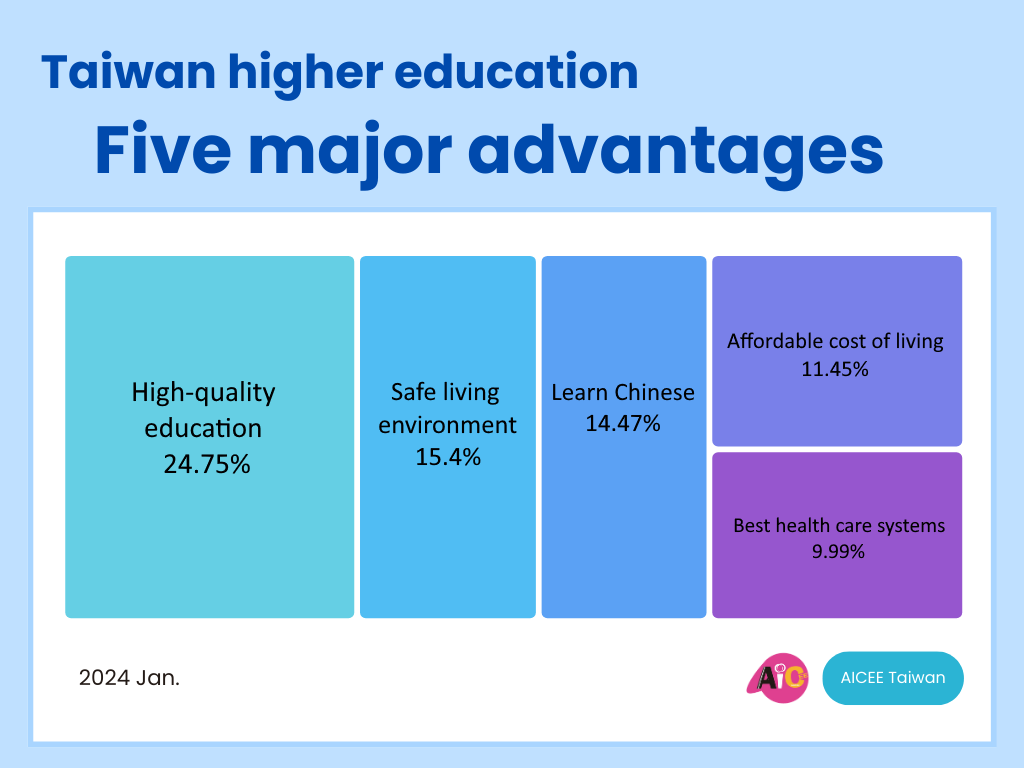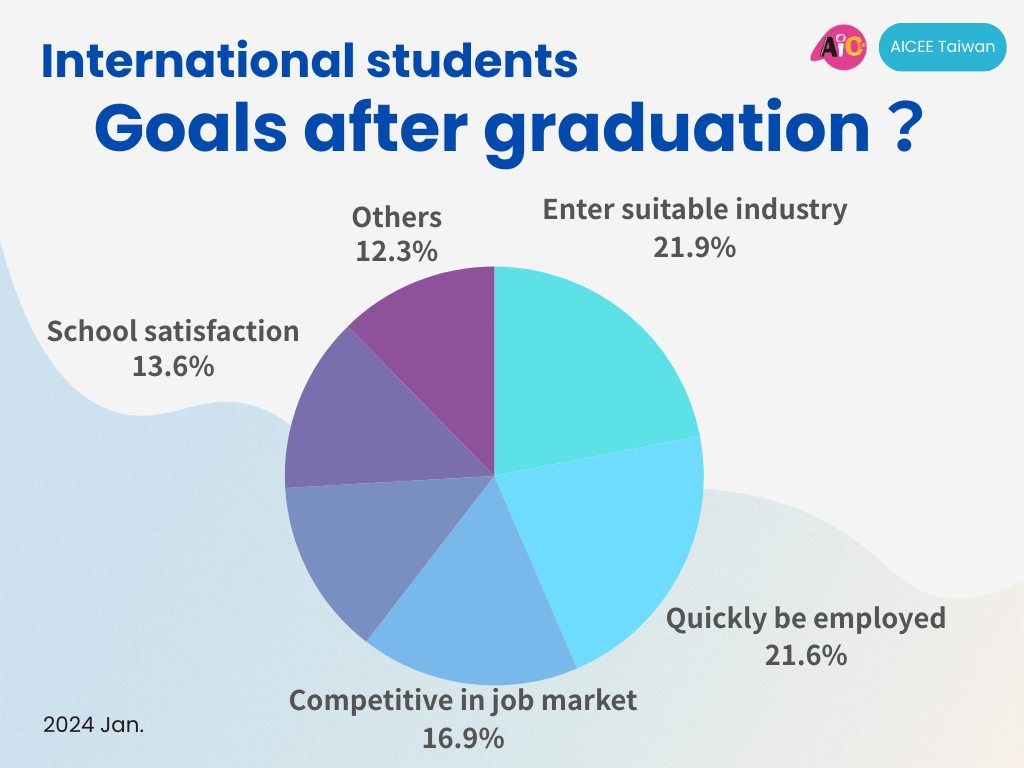With the end of the COVID-19 pandemic, exchange between countries has resumed. This has pushed countries like Taiwan to implement policies to attract international talent for continued global development. With Taiwan being heavily impacted by the declining birthrate, there is a major question at hand: How can the country become a leader in the attraction, cultivation, and retention of international talent?
To answer this question, The Taiwan International Cultural and Educational Exchange Association (AICEE) today announced the findings of their annual “International Enrollment Blue Ocean Trend Report”. This report consists of responses by students who attended the Taiwan Education Fair held by AICEE with nearly 2175 responses between January and December of 2023. This was in response to the “New Scholarship Program” initiative that was announced by the Executive Yuan Council, which will be launched this year and be a major funding piece to attract international students to study and work in Taiwan. One of the most notable statistics of the report is that more than 80% of overseas students who participated in the survey expressed a willingness to study and stay in Taiwan to work.

The “International Enrollment Blue Ocean Trend Report” is an annual report conducted by AICEE that surveys international students who attended the Taiwan Education Fair held by AICEE. This year, more than 2,000 prospective students from 60 countries across the globe were surveyed; All of whom were interested in either learning Chinese or obtaining a degree abroad. The survey showcased that prospective international students believe that studying in Taiwan holds 3 major advantages compared to other countries: a high-quality education (24.75%), a safe living environment (15.4%), and the opportunity to learn Chinese (14.47% ). Other important, but less valued advantages are affordable tuition fees (10.4 % ) and Taiwan’s convenient geographical location (4.49 %).
When asked about the launch of the Executive Yuan Council’s “Industrial-Academic Scholarship”, which will provide internship subsidies for students, nearly 86% of respondents expressed willingness to apply for this program. As for their goals after graduation, a majority of respondents expressed 3 things: to enter a suitable industry (21.9%), to quickly be employed (21.6%), and to become strong candidates in the job market (16.9%). In addition, 14% of the respondents hope that the experience of studying in Taiwan will provide them with suitable development for the pursuit of future graduate programs.
For what respondents valued most when applying to a university abroad the leading 3 responses were: scholarships and grants (24.37%), all-English courses (17.28%), and excellent quality teaching (14.45%). For respondents who are interested in learning Chinese, important factors that affected their decision were: scholarships and grants (23.25%), excellent quality teaching (15.95%), and good school geographical location (10.6%).
Finally, the breakdown for degree types respondents were pursuing are as follows: bachelor’s degree (46%), master’s degree (44%), and doctorate (10.1%). The 5 most popular fields that respondents are pursuing a degree in are: business management (20.2%); medicine, health and social welfare (14.1%); engineering, manufacturing, and construction (12.9%); information and communications technology (12%); and education (9.85%).

Dr. Hua-Fu Hsu, Dean of International Affairs of National Chung Cheng University, said that the government has recently launched “new scholarship program in STEM and semiconductors”. He hopes that more overseas students can use government and corporate scholarship subsidies to “study in Taiwan and enhance Taiwan’s industrial strength”. He believes universities in Taiwan should continue to “actively promote overseas enrollment” and “cultivate foreign STEM talents to stay in Taiwan”.
Linda Chang, CEO of the International Office of Chang Gung Memorial University, states that “Educational quality is the most important thing for international students to choose to study in Taiwan. Taiwan is close to Southeast Asia and Australia and has launched an ‘Employment Gold Card’, which is a high incentive for international talents. All schools should focus on cultivating students. International mobility, digital capabilities, and cross-domain learning capabilities to cultivate local and international talents.”
Chih-Wei Hung, CEO of the AICEE (who is responsible for the analysis of this survey), said “Studying abroad is a major career investment for international students. The survey also shows that international students mostly expect to have a good career development after graduating from studying abroad. It is recommended that Taiwan universities and the Chinese Language Centers can provide not only basic admissions information but also internship and work-study information during the study period, as well as career guidance after graduation, which will be of great help in attracting international students.”